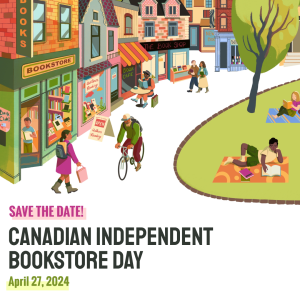 Today, we here at Brad OH Inc. have the privilege of interviewing Cathy MacNeil, author of the newly released ‘Dying to be Seen: The Race to Save Medicare in Canada’.
Today, we here at Brad OH Inc. have the privilege of interviewing Cathy MacNeil, author of the newly released ‘Dying to be Seen: The Race to Save Medicare in Canada’.
‘Dying to be Seen: The Race to Save Medicare in Canada’ is currently a best seller with Friesen Press, and explores the current struggles and future trajectory of the Canadian Healthcare System.

-Click Here to Buy-
Canada’s public health care system is under attack. Defunding, deregulating, defrauding, and deliberate disintegration have manipulated Canadians into despising their once-beloved system as unsustainable, unfixable, and cost-prohibitive. There is a reason for that. Neoliberalism has the rescue medication locked within its assault armamentarium-privatization. The last stage of the takedown has begun and the slow but steady infusion of privatization now flows unobstructed through the veins of Medicare. Dying to be Seen lays out the deleterious effects of such an attack and how it is impacting every stakeholder in Canada’s Medicare system.
For health care policymakers, the book outlines the urgency of the constructive, evidence-based action that is required to save the system. For administrators, it sheds light on why the current solutions have failed. For law makers and governments, the book is an urgent warning to rearrange the status quo to divorce political expediency from sound policy or suffer the dire consequences. For average Canadians, it is a call to arms to save Canada’s universal, egalitarian Medicare program from sliding into the cruel, profit-driven system that bedevils their neighbours to the south.
A clarion call for change, Dying to be Seen traces the origins of Medicare and offers a glimpse of what Canadians can expect to happen if we decide not to intervene now. It also offers real, implementable, solutions to save Canada’s cherished public health care system and emphasizes the urgency of acting on them.
Brad OH Inc.: This is your first book Cathy, that’s so exciting! What was the writing experience like for you, from blank page to publication?
Cathy MacNeil: The writing experience was both exhilarating and intense. Exhilarating, because I felt as the project gathered momentum it had the capacity to really help the Canadian Medicare system and by default, patients across the country. Intense, because the research constantly reminded me of how far this system has fallen.
Brad OH Inc.: You worked for a long while in the healthcare field, were there any particular experiences that made you want to write this book?
Cathy MacNeil: There were many experiences that pushed me to write this book after all I’ve been working within the system for forty-seven years. However, one of the key experiences was my time as a Nurse manager in a busy city ER that had a catchment area of about 120k people. This position placed me directly between upper management who often failed to see the realities on the ground, and my wonderful staff who worked relentlessly to provide the best care they could in a system that clearly wasn’t listening.
Brad OH Inc.: Help us understand some of the current failings you see in our healthcare system, and what the causes might be.
Cathy MacNeil: That’s a loaded question but I’ll try my best to summarize via the books content: Broadly we are submerged in a political economy that is really a type of corporate Neo-feudalism. Everything is based on growth, capitalism, consumption, working harder, faster while trying to consume more, irrespective if we need more or not.
In such a system capital is king and public systems are viewed as useless. This is certainly true where our public health care system is concerned. As such it has been defunded, deregulated, and defrauded. This has led to a deliberate state of disintegration, which we find ourselves in the last phases of now. So, to rescue the system we must change that culture and we do that by exercising our voices as funders of the system.
That’s a broad perspective but unfortunately, we cannot decouple our public system from the political economy it is currently entangled in. So, changing the narrative towards a more humanist one will help counter the current narrative which is largely one of we can’t afford the public system therefore we need to privatize.
Next, we need to take decisive action on a federal government level, provincial and territorial level, and on a personal level that will rescue the system from the above elements that I have called the four horsemen.
Brad OH Inc.: Can you summarize for us some of the key conclusions or recommended changes you propose in the book?
Cathy MacNeil: Let me tackle this one on three specific levels.
Federal government action required:
- Change the culture pertaining to health care in the country by joining the Wellbeing Economies group (WEGO).
- Focus on being a well-being economy.
- Establish a FARE council (Financial accountability regarding expenditures) that will focus on saving tax dollars, not wasting them with the Auditor General in charge.
- All savings incurred from reducing wasteful spending should be redirected to health care.
- Stop the fiscal food-fight with the provinces and immediately renew provincial and territorial relationships.
- Establish universal support for poverty.
- Launch a universal Pharmacare strategy.
- Implement national standards for long-term care and bring the sector under the Canada Health Act.
Provincial government action required:
- Establish FAREcouncils provincially and territorially with the same guidelines as their federal counterpart reporting to the federal council annually.
- Tackle wait times by switching to pooled referral systems.
- Set up community care models with an emphasis on disease prevention.
- Redirect the subsidization of physician’s liability costs back into the system by ceasing to subsidize these costs.
- Restructure current home care models with a vigorous home care expansion program utilizing modern technology and reporting systems.
- Set up centres to track all data related to tracking health care Human Resources such as recruitment and retention issues.
Personal action:
- Canadians must reject the narrative that there is no money for health care and demand accountability.
- Citizens must practice healthcare care activism.
- Canadians must practice health promotion and illness prevention in a broad sociological sense.
Brad OH Inc.: If people can finish this book with one key take away, what would that be?
Cathy MacNeil: That the Canadian health care system can be saved by all of us because we are the funders and as such the shareholders in this system.
Collectively we can rescue Medicare. And we must rescue it because it will be privatized and lost for our children and grandchildren otherwise.
Brad OH Inc.: I know we can’t cover everything here, and we don’t want to, but give us a tease of what else is to be discovered in your book.
Cathy MacNeil: Ok. Well, There’s a brief history of how Canada came to have a public health care system, the myth regarding privatization backed by tons of evidence-based data, why emergency departments are failing, how the ‘four horsemen’ have trampled the public system almost to death, as well as how and why we must act now to rescue Medicare.
Brad OH Inc.: That’s a lot of fantastic content! What’s the best place to buy your book?
Cathy MacNeil: Its been selling out on Amazon since publication but I still suggest people try Amazon first. If that fails indigo.ca will order and ship it to your nearest Chapters store for free.
Also, all e-book options are available on Kindle, Apple Books, Google Play, Nook and Kobo.
Brad OH Inc.: Anything else you’d like to share? …Any plans for future books?
Cathy MacNeil: Although I am hoping policy-makers and government officials read this book it was written primarily for the funders (taxpayers). It may be one of the few projects totally devoted to the citizens of Canada including every hard-working health care worker that is out there trying their level best to sustain a system that is collapsing.
For the Canadians that have suffered and died because this system has failed them this book is also for them and their families. We have not forgotten you and we will wage this battle to repair this system until someone somewhere in a position of authority finally listens.
As for my next book, I’m looking at deconstructing the private health care system in the US and how it fails people.
#MedicareMatters
We at Brad OH Inc. want to thank Cathy MacNeil for taking the time for this interview, and for writing this essential look into the Canadian Healthcare System.
Remember to click here to get yourself a copy of ‘Dying to be Seen: The Race to Save Medicare in Canada’.
Finally, be sure to check back soon here at Brad OH Inc. for some exciting news on my own upcoming novel, ‘Meaning Less’.
Cheers,
-Brad OH Inc.
 Next week, join myself and other local authors at Audreys Books to celebrate Canadian Independent Bookstore Day!
Next week, join myself and other local authors at Audreys Books to celebrate Canadian Independent Bookstore Day! Saturday, April 27th, Brad Oates along with other local Authors will be at Audreys Books (10702 Jasper Ave, Edmonton). The event runs from 10:30am-2:30pm, with fun and prizes throughout.
Saturday, April 27th, Brad Oates along with other local Authors will be at Audreys Books (10702 Jasper Ave, Edmonton). The event runs from 10:30am-2:30pm, with fun and prizes throughout. I will be there from 11:30am onward, and Audreys Books will have copies of both ‘Meaning Less‘ and ‘Edgar’s Worst Sunday‘ on hand for purchase!
I will be there from 11:30am onward, and Audreys Books will have copies of both ‘Meaning Less‘ and ‘Edgar’s Worst Sunday‘ on hand for purchase!




